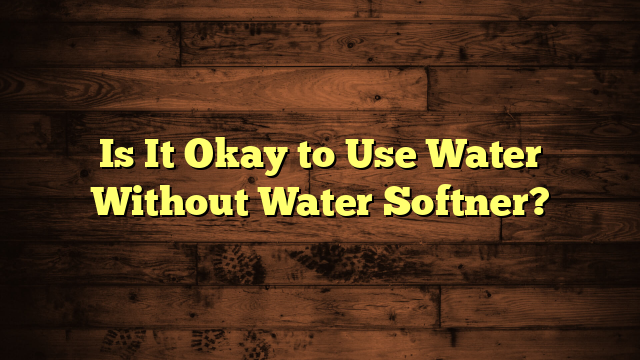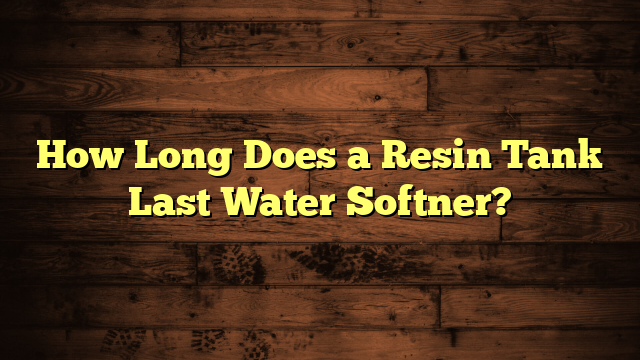Is It Okay to Use Water Without Water Softner?
You might be wondering if using water without a water softener is a practical choice for your household. While many people manage just fine with hard water, there are some remarkable implications you should consider. Hard water can impact everything from the efficiency of your soap to the lifespan of your appliances. Plus, it may affect your skin and hair in ways you hadn't anticipated. As you weigh the pros and cons, you'll find there are several angles to explore that could influence your decision considerably.
Key Takeaways
- Using hard water without a softener can lead to mineral buildup in appliances, reducing their efficiency and lifespan.
- Hard water can decrease soap effectiveness, resulting in more product usage and less effective cleaning.
- Skin and hair may suffer from increased dryness and irritation due to minerals stripping natural oils.
- Hard water can contribute to health issues, such as kidney stones, and may affect nutrient absorption in the body.
- Alternatives to water softeners, like vinegar cleaning or filtration methods, can help manage hard water effects without chemical softeners.
Understanding Hard Water
Understanding hard water is essential for anyone looking to optimize their water usage without a softener. Hard water, characterized by its high mineral content, primarily contains calcium and magnesium ions. This specific water composition can vary greatly based on geographic location, which means that your water may differ from that of your neighbor or even the next town over.
When you use hard water, you're dealing with the implications of these dissolved minerals. They can affect everything from soap efficiency to the lathering of shampoo. You might notice that your soap doesn't foam as much, leading you to use more product than necessary.
Furthermore, hard water can leave behind mineral deposits, which can impact your daily tasks like cleaning and laundry. Understanding the mineral content in your water not only helps you make informed choices about your cleaning products but also aids in adapting your routines.
You might find that using specific detergents or even vinegar can mitigate some of the challenges hard water presents. By grasping the characteristics of hard water, you can effectively manage its use in your home without resorting to a water softener.
Effects on Household Appliances
Hard water can greatly impact your household appliances, leading to efficiency issues and increased maintenance costs. When you use hard water, mineral buildup occurs in your appliances, which can shorten their lifespan. This means you'll find yourself replacing them more frequently than necessary, affecting your budget and convenience.
To illustrate the effects of hard water on your appliances, consider the following table:
| Appliance Type | Impact of Hard Water |
|---|---|
| Dishwasher | Reduced cleaning efficiency, leading to more cycles required |
| Washing Machine | Increased wear on components, resulting in more frequent repairs |
| Water Heater | Decreased heating efficiency, causing higher energy bills |
Impact on Skin and Hair
Using water without a softener can lead to noticeable changes in your skin and hair.
You might experience dry skin issues due to the higher mineral content, which can strip natural oils.
Similarly, your hair texture may alter, becoming more brittle or frizzy as a result of mineral buildup.
Dry Skin Issues
Your skin and hair often bear the brunt of hard water's effects, leading to noticeable dryness and irritation. When you wash with hard water, minerals like calcium and magnesium can strip your skin of natural oils, making it feel rough and flaky.
Here are some common issues you might face:
- Increased Dryness: Hard water can exacerbate existing dry skin conditions, making them more difficult to manage.
- Itchiness: The minerals can irritate sensitive skin, leading to discomfort and itching.
- Dull Appearance: Your skin might look lackluster and feel rough, lacking the natural glow you desire.
- Compromised Barrier: Over time, the skin's protective barrier can weaken, increasing susceptibility to environmental irritants.
To combat these effects, consider implementing effective dry skin remedies and hydration techniques. Regularly moisturizing with a thick cream can help lock in moisture, while using gentle, sulfate-free cleansers can minimize irritation.
Furthermore, drinking plenty of water throughout the day can boost your overall hydration levels, supporting healthier skin. By being proactive, you can reduce the impact of hard water on your skin and restore its natural vibrancy.
Hair Texture Changes
The impact of hard water extends beyond skin issues, greatly affecting hair texture as well. When you wash your hair with hard water, the minerals—primarily calcium and magnesium—can build up on your strands. This accumulation makes your hair feel rough, dry, and unmanageable, leading to significant styling challenges.
You might notice that your usual products don't perform as effectively, leaving you frustrated with limp or frizzy locks.
In terms of hair health, the harsh minerals strip away natural oils, causing your hair to lose its luster and become more prone to breakage. If you have color-treated hair, hard water can also alter the vibrancy of your color, leading to dullness and uneven tones.
The result? You may find yourself spending more time and money on products that promise to restore your hair's shine and softness, yet they often fall short.
To combat these issues, consider using a clarifying shampoo to remove mineral buildup, or invest in a water softener. Ultimately, prioritizing hair health will make styling easier and maintain the overall integrity of your hair.
Cleaning Challenges With Hard Water
Hard water poses significant cleaning challenges, particularly in households that rely on it for daily tasks. The minerals in hard water can make effective cleaning difficult, leading to frustrating experiences.
Here are some common issues you might encounter:
- Soap Scum: Hard water reacts with soap, forming a residue that clings to surfaces, making it harder for you to achieve a clean finish.
- Stains: You may notice stubborn mineral deposits on sinks, faucets, and glassware. These stains can be tough to remove, requiring specialized cleaning techniques.
- Laundry Issues: Hard water can inhibit stain removal in laundry, leaving clothes looking dingy and dull despite washing.
- Dishware Residue: Your dishes might've a cloudy appearance after washing, indicating that minerals aren't rinsing away properly.
To combat these challenges, you may need to adopt specific cleaning techniques, such as using vinegar for stain removal or opting for detergents designed for hard water.
Understanding these issues can help you develop a more effective cleaning routine, ensuring your home remains spotless, even when using hard water.
Health Considerations
Using hard water can raise several health considerations that deserve attention. While hard water isn't inherently dangerous, it can impact water quality and affect drinking safety. For instance, the high mineral content may lead to concerns about potential health effects over time. Below is a table summarizing key aspects of hard water and its implications for health:
| Aspect | Consideration | Potential Impact |
|---|---|---|
| Mineral Content | High levels of calcium and magnesium | May contribute to kidney stones or digestive discomfort |
| Heavy Metals | Possible presence in old pipes | Risk of lead or other heavy metal exposure |
| pH Levels | Can be alkaline | Might affect nutrient absorption |
| Skin Irritation | May cause dryness or irritation | Could exacerbate skin conditions like eczema |
| Taste and Odor | Distinctive taste | May deter hydration, impacting overall health |
You should evaluate your water source to verify it meets acceptable standards. If you notice unusual tastes or effects, consider testing your water quality. Prioritizing drinking safety is essential for your health and well-being.
Cost-Benefit Analysis
Evaluating the cost-benefit relationship of utilizing hard water without a water softener is essential for making informed decisions.
Understanding the financial implications can help you weigh your options effectively. Here's a breakdown of key factors to reflect on:
- Initial Costs: Using hard water eliminates the upfront investment of purchasing a water softener, which can range from a few hundred to several thousand dollars.
- Maintenance Expenses: Hard water can lead to increased wear and tear on appliances, resulting in higher repair or replacement costs over time.
- Cleaning Supplies: You may find yourself spending more on specialty cleaning products to combat mineral build-up, which could add to your monthly expenses.
- Water Quality Impact: Poor water quality can affect your skin and hair, potentially leading to additional costs for skincare products or treatments.
Alternatives to Water Softeners
Numerous alternatives exist for those seeking to manage hard water without investing in a water softener. One effective method is water filtration, which can help reduce mineral buildup. Utilizing a filtration system, such as reverse osmosis or activated carbon filters, can considerably decrease the hardness of the water you use daily.
Another approach involves using a vinegar rinse. Vinegar, a natural acid, can dissolve mineral deposits that accumulate on surfaces and appliances. By incorporating a vinegar rinse in your cleaning routine, you can effectively combat hard water stains and buildup in your dishes, laundry, and even on faucets.
You can also consider installing a showerhead filter that targets hard water minerals, providing you with softer water while bathing. This solution can enhance your skin and hair health, reducing dryness and irritation.
Finally, regularly descaling appliances, like your dishwasher and coffee maker, with a mixture of water and vinegar can prolong their lifespan and efficiency.
Making an Informed Decision
Making an informed decision about managing hard water can greatly impact your home's efficiency and your daily life.
When assessing whether to use water without a water softener, you should evaluate several factors that affect water quality and your overall experience.
Here are four key points to take into account:
- Impact on Appliances: Hard water can lead to mineral buildup in appliances, reducing their lifespan and efficiency.
- Skin and Hair Health: You might notice that hard water can leave your skin dry and your hair dull, affecting your daily grooming routine.
- Cleaning Challenges: Soap doesn't lather well in hard water, which means you may use more products to achieve the same cleanliness, increasing your costs.
- Informed Choices: Evaluate the specific hardness of your water and the potential long-term effects on your home and health to make informed choices.
Frequently Asked Questions
Can Hard Water Affect My Water Bill?
Yes, hard water can impact your water bill. When analyzing costs, consider that hard water may lead to increased energy usage for heating and more frequent plumbing repairs, ultimately raising your overall expenses.
Does Boiling Water Remove Hardness?
Imagine boiling a pot of stubborn pasta; as steam rises, it won't remove hardness from water. Boiling affects mineral solubility but doesn't achieve hardness removal. For that, you'll need a water softener or alternative methods.
Are There Specific Plants That Thrive in Hard Water?
Yes, specific hardy plants like succulents and some ferns thrive in hard water due to their efficient mineral uptake. They adapt well, benefiting from minerals that others might find detrimental, enhancing their growth and resilience.
How Can I Test My Water Hardness?
To test your water hardness, you can use a home water testing kit. These kits measure hardness on a scale, helping you determine the mineral content and whether you need to contemplate water softening options.
Can I Use Hard Water for Drinking?
Can you really thrive without hard water? You can drink hard water safely; its minerals, like calcium and magnesium, offer benefits. Just verify it meets safety standards, as excessive hardness might affect taste or plumbing.
Conclusion
So, if you enjoy scrubbing away at soap scum while your appliances slowly transform into mineral-coated relics, then by all means, keep using hard water without a softener. Who needs smooth skin or efficient cleaning when you can embrace the thrill of a never-ending battle against buildup? Sure, you might save a few bucks, but why not invest in your daily frustration instead? After all, who doesn't love a little extra challenge in their life?







